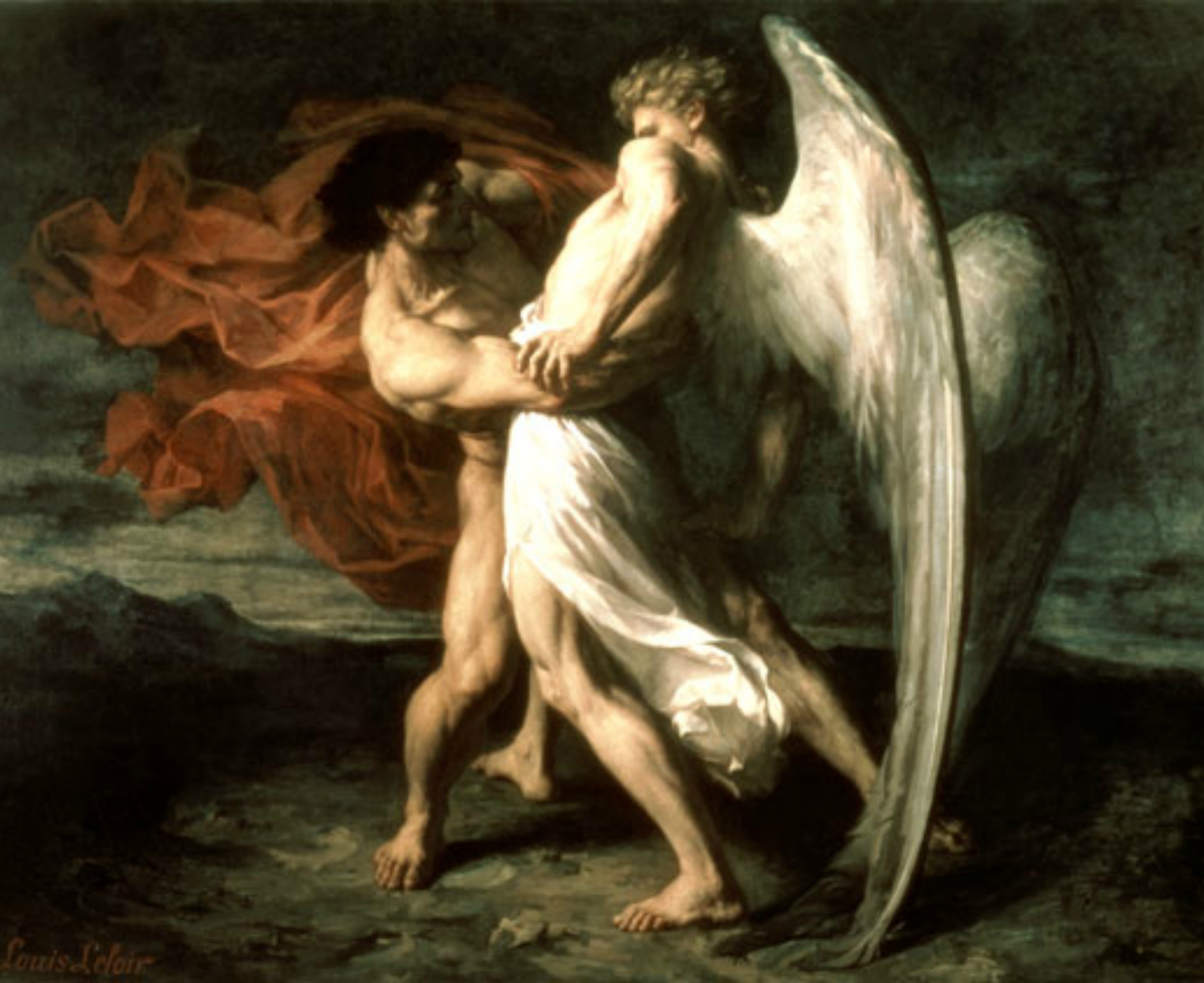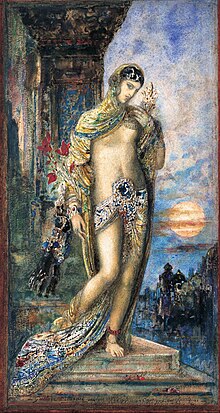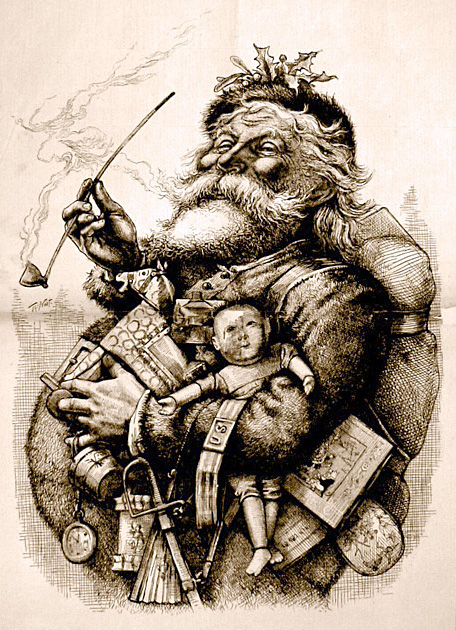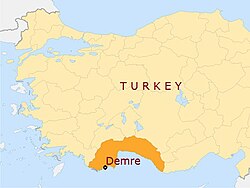
The book cover: “Jacob wrestling with the angel” – God – and being “transformed…”
* * * *
Remember when Rick Santorum said “there’s No Such Thing As A Liberal Christian?” There’s a new e-book out to challenge his claim. Which is another way of saying I just published “No Such Thing as a Conservative Christian.” (Subtitle: “And Other Such Musings on the Faith of the Bible.”) Just check out the Amazon Kindle Store. (Under the nom de plume, “James B. Ford.”)
 In one sense it talks about being transformed. As in, transformed by reading the Bible on a daily basis. (And maybe faithfully reading this blog?) In turn, the King James Bible Dictionary says that term means to “change the form of; to change the shape or appearance; to metamorphose; as a caterpillar transformed into a butterfly.”
In one sense it talks about being transformed. As in, transformed by reading the Bible on a daily basis. (And maybe faithfully reading this blog?) In turn, the King James Bible Dictionary says that term means to “change the form of; to change the shape or appearance; to metamorphose; as a caterpillar transformed into a butterfly.”
(To “metamorphose” means in pertinent part to “change into a different physical form especially by supernatural means.”)
But as the book notes, way too many way-too-conservative Christians don’t want to change. They don’t like the idea of being “transformed,” as Jacob was. They prefer staying “caterpillars,” Biblically speaking. They’d rather stay in their cocoon of literalism.
You can get more juicy details at the Kindle Store site, by typing in the title’s key words. There too you can read the 600-word “blurb.” Also – for reference – the chapter titles are listed in the notes below. For one example the book talks of the difference between Garritroopers and REAL soldiers – in the “Army of Christ.” That last post – from November 13 – became Chapter 27, the end of the book. Other chapters include “The Bible’s erotic love song.” (“From last year.”)
 I figured that’d get people’s attention, but the chapter also asks questions like: Why don’t Bible Literalists interpret the “Songs of Songs” literally? Why don’t they adhere to the “exact letter or the literal sense” for this book, like all the others in the Bible?
I figured that’d get people’s attention, but the chapter also asks questions like: Why don’t Bible Literalists interpret the “Songs of Songs” literally? Why don’t they adhere to the “exact letter or the literal sense” for this book, like all the others in the Bible?
To compare, some literalists are “snake handlers,” based on a literal translation of Mark 16:18: “They will pick up snakes with their hands.” (Taken out of context, I’d say.) But the “love song” chapter says, “Be consistent. If you’re going to interpret Mark 16:18 literally, do the same with Song of Solomon 7:1-3: ‘Your rounded thighs are like jewels… Your two breasts are like two fawns…’”
Moving on – and as noted in the e-book “blurb” – the book’s title is a twist on Rick Santorum’s saying in 2008, “There’s no such thing as a liberal Christian.” (In a kind of “Bizarro” turnabout-is-fair-play. Or some well-deserved “busting of conservative chops.”)
But the journey that led to the book started four years ago. It just ended, with a realization that there ARE conservative Christians However, they both definitely short-change themselves and drive away converts “in droves.” (With their narrow view of the Bible. Then too, another conclusion the book came to was: They’re more like “hang around the fort” Christians.*)
But the book – and this blog – gives potential Bible students a more challenging alternative to the “limited Army career options” offered up by conservative Christians. (That’s a metaphor based on Paul’s saying in 2d Timothy 2:3, “Join with me as a good soldier of Christ Jesus.”)
And in the U.S. Army for example, you do – at first – go to boot camp to “learn the fundamentals.” But conservative Christians “never go beyond boot camp.” They never go beyond the fundamentals. They’d rather stay “career buck privates.” (See Chapter 16.)
But as the book notes, a true Soldier of Christ WANTS to go beyond the “safety of the fort” – or the cocoon – and wrestle with God. Of course God will win every ‘match,” but in the process YOU get stronger and stronger – spiritually – as discussed in Chapter 5. (“On arguing with God,” which includes the idea that your Bible journey calls you “to vigor, not comfort.”)
In the meantime, since publishing the book I found what might be a better metaphor than arguing with God or “wrestling with God.” Back in the 1970’s I had a book, The Inner Game of Tennis. As I remember, one passage talked about how a good player should compete with a not-so-good player. So the better metaphor could be “playing tennis with God.”
I’ll try to develop this theme later on, but the point is pretty simple. When you “play tennis with God,” He plays you in a way that will help you develop. He doesn’t just try to beat the tar out of you, to humiliate you, like so many “human” players do. I put more thoughts on this in the notes, but the point is that if you challenge God – if you “argue” with Him – you usually end up a stronger person for it. (Though there will be “disasters” from which spiritual growth comes…)
The bottom line? We’re all Soldiers in the Army of Christ, conservative, liberal and moderate. But we don’t all have to “hang around the fort.” Some Christians choose the option for some “Advanced Individual Training” – like the U.S. Army – and go out beyond the fort. AND have some adventure in their lives. Or as Jesus promised in John 10:10, to live life “in abundance.”
That’s from the Afterword, which adds that the book “can get you started doing that.”
* * * *
![âÂÂThereâÂÂs No Such Thing as a Conservative ChristianâÂÂ: and Other Such Musings on the Faith of the Bible by [Ford, James B.]](https://images-na.ssl-images-amazon.com/images/I/41I-p6zVnFL.jpg)
* * * *
The upper image is courtesy of Jacob wrestling with the angel – Wikipedia. See also On arguing with God and More on “arguing with God” – and St. Mark as Cinderella.
Re: Santorum on liberal Christianity. There’s some debate whether he actually said that about “liberal Christians,” but not that some conservative Christians truly believe it. Some indeed have called liberal Christianity a “heresy,” notwithstanding the warning of Deuteronomy 19:16-19. See for example The ‘Bizarro Rick Santorum’ says, which became Chapter 21.
 Re: Butterflies and cocoons. See also How caterpillars gruesomely transform into butterflies, at left.
Re: Butterflies and cocoons. See also How caterpillars gruesomely transform into butterflies, at left.
The image below the “erotic love song” passage is courtesy of Song of Songs – Wikipedia. The caption: “‘Song of Songs’ (Cantique des Cantiques) by Gustave Moreau, 1893.”
Re: “Hang around the fort” Christians. As the book notes, I’ve used a number of metaphors to describe such too-conservative, too-literal followers-of-Jesus. Boot camp Christians, carbon-copy Christians, career buck privates – Biblically speaking – and the like. But after further review, the term “stick in the mud Christians” deserves further exploration. For example, there’s a lady in my church choir who is conservative, and a Christian, but she does things like “shotgun” competitively and go to Las Vegas on a regular basis to play poker; also “competitively.” And she drives a racy big-engine sports car, and for all that is definitely not a “stick in the mud” Christian. See ‘Stick in the mud’ – the meaning and origin of this phrase, referring to a “narrow-minded or unprogressive person; one who lacks initiative.” The Free Dictionary said the term is based the idea of someone “content to remain in an abject condition.” Or there’s the generic “person who is dull and unadventurous and who resists change.” (Yup, that sounds about right…)
The full title to the “tennis” book: The Inner Game of Tennis: The Classic Guide to the Mental Side of Peak Performance. As to the author, see Timothy Gallwey – Wikipedia:
The “inner game” is based upon certain principles in which an individual uses non-judgmental observations of critical variables, with the purpose of being accurate about these observations. If the observations are accurate, the person’s body will adjust and correct automatically to achieve best performance.
Which sounds a bit like the blog-post On sin and cybernetics, which forms Chapter 6 in the book.
The lower image is courtesy of the Amazon.com Kindle Store.
* * * *
I wrote the following after getting my copy of “Inner Game” from the local library. The full chapter-title list comes below these “rough notes for possible future use:”
The easiest way – used by most “better players” – is just to beat the tar out of a lesser opponent. But the worthier – more challenging – way is for the “better” to play just good enough to win. In that way he challenges the lesser player, and forces his own “self” to stretch and become better. His primary goal is still to win, but to win in such a way that both players grow. (E.g., the lesser player feels good because he “hung in there” with a better player.)
So today I went to the library and got the 2008 Random House paperback edition. (“Foreward by Pete Carroll, head football coach, USC.”) I found what I think was the remembered passage. From page 121, Chapter 9 (The Meaning of Competition), it talked about the way that God – in my remembrance – gives you the chance to “find out to what heights [you] can rise.” Then the author wrote about concluding that “true competition is identical with true cooperation:”
Each player tries his hardest to defeat the other, but in … true competition no person is defeated. Both players benefit by their efforts [and] both grow stronger and each participates in the development of the other… You tend to build confidence in your opponent… Then at the end you shake hands with your opponent, and regardless of who won you thank him for the fight he put up, and you mean it.
So from God’s point of view, “He makes it more challenging for His opponent.” God makes it more challenging for us when we argue with, wrestle with, or play tennis with Him, instead of just meekly accepting a narrow, limited version of how conservatives see the Bible.
So it seems to me that God wants us to “challenge Him,” to ask questions, to go beyond a mere literal acceptance of what somebody else has said the Bible means. Like Buddha said:
Do not believe on the strength of traditions even if they have been held in honor for many generations. . . Believe nothing which depends only on the authority of your masters or of priests. After investigation, believe that which you yourself have tested and found reasonable, and which is good for your good and that of others.
But the Apostle Paul said pretty much the same thing in First Thessalonians 5:21: “Prove all things; hold fast that which is good.” And First John 4:1, “Do not believe every spirit, but test the spirits to see whether they are of God.” And also Philippians 2:12, where Paul added, “Work out your own salvation, with fear and trembling.” (Borrowed from The Christian repertoire…)
I’m not sure how I got to quoting Buddha, but it’s from another e-book I’ll be publishing soon…
* * * *
The following is the list of Contents in the “NoCon” book, Chapters 1 through 27. Also, a Preface and an Afterword. For some practice using the search engine at the upper right of the main page, just type in the key words. And as noted above, the last chapter – 27 – comes from the November 13, 2018 post, On Garritroopers and REAL soldiers – in the “Army of Christ:”
Preface
Chapter 1: “Trump-humping” – and Christians arguing with each other
Chapter 2: Another view of Jesus feeding the 5,000
Chapter 3: On three suitors (a parable)
Chapter 4: On Jesus: Liberal or Fundamentalist?
Chapter 5: On “wrestling” with God
Chapter 6: On sin and cybernetics
Chapter 7: On reading the Bible
Chapter 8: On the Bible and mysticism
Chapter 9: The True Test of Faith
Chapter 10: On singing a NEW song to God…
Chapter 11: On WHY we’re getting “less Christian”
Chapter 12: Was Moses the first to say, “It’s only weird if it doesn’t work?”
Chapter 13: “Bible basics” revisited
Chapter 14: On Moses getting stoned…
Chapter 15: My Lenten meditation…
Chapter 16: Conservative Christian – “Career buck private?”
Chapter 17: On snake-handling “redux”
Chapter 18: The latest from a “None…”
Chapter 19: Moses at Rephidim: “What if?”
Chapter 20: On Moses and Paul “dumbing it down…”
Chapter 21: The “Bizarro Rick Santorum” says…
Chapter 22: “There’s no such thing as a ‘conservative Christian…’”
Chapter 23: The Bible’s “erotic love song”
Chapter 24: Jesus to His followers: “Don’t get TOO conservative!
Chapter 25: Did Jesus interpret the Bible “liberally?”
Chapter 26: Soldier of Christ – “and BEYOND!”
Chapter 27: On Garritroopers and REAL soldiers – in the “Army of Christ”

 That Feast day came after last December 6 – about a week ago – which was the Feast day for the REAL “Jolly Ol’ Saint Nick.” See There really IS a “Saint Nick” (Virginia), from December 9, 2017. But first another “but first:” Not only did I just publish a new E-book, there’s now a paperback version. It’s available from Lulu.com. (Under the Shop link, and under my nom de plume, “James B. Ford.”)
That Feast day came after last December 6 – about a week ago – which was the Feast day for the REAL “Jolly Ol’ Saint Nick.” See There really IS a “Saint Nick” (Virginia), from December 9, 2017. But first another “but first:” Not only did I just publish a new E-book, there’s now a paperback version. It’s available from Lulu.com. (Under the Shop link, and under my nom de plume, “James B. Ford.”) You can see more about this prototype in There really IS a “Saint Nick.” That Real St. Nicholas saved three innocent men – shown in the painting at the top of the page – who’d been wrongly sentenced to death by a corrupt official. That corrupt ruler of Myra – today’s Demre, Turkey – accepted bribes to sentence the men to death. But this first St. Nick was not to be intimidated by the “power of others, especially the power of the corrupt.” He “stormed into the prefect’s office and demanded that the charges against the three men be dropped:”
You can see more about this prototype in There really IS a “Saint Nick.” That Real St. Nicholas saved three innocent men – shown in the painting at the top of the page – who’d been wrongly sentenced to death by a corrupt official. That corrupt ruler of Myra – today’s Demre, Turkey – accepted bribes to sentence the men to death. But this first St. Nick was not to be intimidated by the “power of others, especially the power of the corrupt.” He “stormed into the prefect’s office and demanded that the charges against the three men be dropped:” That brings us to the feast day for the “original Doubting Thomas,” a term which refers to a “skeptic who refuses to believe without direct personal experience.” But as noted last year, that’s exactly what going to church and reading the Bible is supposed to provide: An opportunity for a direct and personal experience with the Force that Created the Universe. See also The Bible and mysticism, which said Christianity is all about “obtaining unity with God, through Christ.”
That brings us to the feast day for the “original Doubting Thomas,” a term which refers to a “skeptic who refuses to believe without direct personal experience.” But as noted last year, that’s exactly what going to church and reading the Bible is supposed to provide: An opportunity for a direct and personal experience with the Force that Created the Universe. See also The Bible and mysticism, which said Christianity is all about “obtaining unity with God, through Christ.”

 In one sense it talks about being
In one sense it talks about being  I figured that’d get people’s attention, but the chapter also asks questions like: Why don’t Bible Literalists interpret the “Songs of Songs” literally? Why don’t they adhere to the “exact letter or the literal sense” for this book, like all the others in the Bible?
I figured that’d get people’s attention, but the chapter also asks questions like: Why don’t Bible Literalists interpret the “Songs of Songs” literally? Why don’t they adhere to the “exact letter or the literal sense” for this book, like all the others in the Bible?![âÂÂThereâÂÂs No Such Thing as a Conservative ChristianâÂÂ: and Other Such Musings on the Faith of the Bible by [Ford, James B.]](https://images-na.ssl-images-amazon.com/images/I/41I-p6zVnFL.jpg)
 Re: Butterflies and cocoons. See also
Re: Butterflies and cocoons. See also